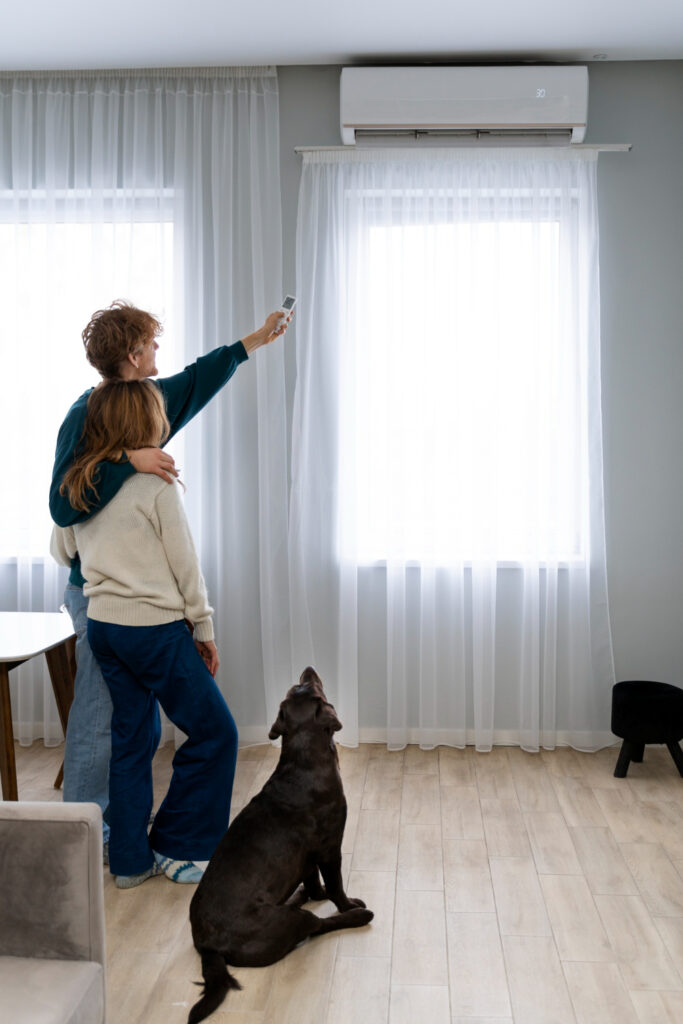
Improving indoor air quality (IAQ) plays an essential part in creating the ideal living conditions for you and your loved ones. IAQ goes far beyond mere temperature regulation – it encapsulates both its cleanliness and freshness for you every day as you breathe it in. While maintaining proper functioning HVAC equipment is certainly critical in providing healthy indoor air, attaining truly exceptional IAQ requires much more than that!
In this comprehensive guide, we will delve into practical tips and insights to enhance IAQ in your home. To ensure that your HVAC system is operating optimally, consult with a trusted HVAC company for professional guidance and maintenance.
Understanding Indoor Air Quality
Indoor Air Quality (IAQ), more commonly referred to as IAQ, measures the quality of air within your home. IAQ measures an intricate interaction of factors that determines its cleanliness and safety for residents to breathe safely and breathe easily. Poor IAQ may lead to allergies and respiratory ailments in addition to more serious ailments caused by dust mites, pollens, pet dander particles from cleaning products as well as chemicals from household materials – so understanding its value is the first step toward creating a healthier home environment.
Air quality inside of homes does not remain static; rather it varies due to factors like outdoor air quality, activities within your home, and HVAC system condition. Monitoring and maintaining IAQ requires ongoing vigilance and informed decision-making processes.
Ventilation and Fresh Air
Proper ventilation is the cornerstone of maintaining clean indoor air. Think of ventilation as the process of regularly refreshing your indoor air with clean, outdoor air. It helps dilute and remove indoor pollutants, ensuring that your living space remains healthy and comfortable.
You can significantly improve ventilation by embracing a few straightforward practices. Start by opening your windows regularly to allow cross-ventilation. This simple act can help flush out stagnant air and bring in fresh outdoor air. Additionally, consider using exhaust fans, especially in your kitchen and bathroom. When you cook or use cleaning products, these fans help expel pollutants directly outside, preventing them from lingering indoors.
Air Purifiers and Filtration
Air purifiers and filtration systems are valuable allies in your quest for superior IAQ. These devices are designed to capture and remove airborne particles and allergens, significantly contributing to cleaner air within your home. HEPA filters have proven especially successful at trapping minute particles such as dust, pollen, and pet dander from entering air purifiers or filtration systems.
When selecting one it should fit your specific needs and room size accordingly. Consult with an HVAC company for guidance on selecting the most suitable option for your home. These professionals can recommend high-efficiency equipment and provide expert installation to ensure maximum effectiveness.
Humidity Control
The level of humidity in your home plays a pivotal role in IAQ. Both excessive humidity and insufficient humidity can lead to problems. High humidity can promote mold growth and encourage the proliferation of dust mites and other allergens. Conversely, dry air can cause respiratory discomfort and skin issues.
To reach optimal humidity levels in your environment, invest in either a humidifier or dehumidifier; these devices add or remove moisture based on what best fits your needs. Consult an HVAC company before investing to make sure their HVAC system can effectively manage indoor humidity levels. They can assess your system’s capabilities and recommend adjustments or additions as necessary.
Avoiding Pollutants
Reducing indoor pollutants is another vital aspect of ensuring better IAQ. One significant source of indoor air pollution is smoking indoors. Tobacco smoke contains a host of harmful chemicals that can linger in the air and adhere to surfaces, impacting both air quality and health. Avoiding smoking indoors is a fundamental step towards cleaner indoor air.
Similarly, aerosol sprays and some cleaning products release toxins into the air. Opt for eco-friendly alternatives that are kinder to both your IAQ and the environment. These alternatives are often just as effective in maintaining a clean home but without the harmful side effects.
Takeaway
Improving Indoor Air Quality is an ongoing commitment to a healthier home environment. By gaining a comprehensive understanding of IAQ and implementing these practical tips and insights, you can significantly enhance the air quality in your living space. Always keep in mind that ensuring your HVAC system is well-maintained and properly calibrated is a critical aspect of IAQ management. For professional guidance on maintaining your HVAC system and achieving optimal IAQ, reach out to a trusted HVAC company. A healthier home begins with clean air.